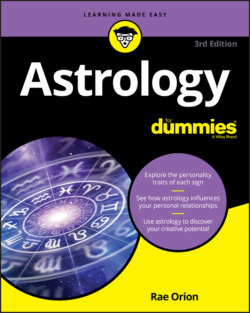Читать книгу Astrology For Dummies - Rae Orion - Страница 45
Romping through Classical Times
ОглавлениеPolitical changes swept across the ancient world during the first millennium BCE. In 539 BCE, the Persians under Cyrus the Great conquered Mesopotamia and the rest of the Middle East. Two hundred years later, Alexander the Great vanquished the same area and ventured beyond it into Egypt and to the border of India.
The shattering aftermath of these invasions — the Persians from the east in 539, and the Greeks from the west in 331 — was not just military or political. It was cultural. Throughout the conquered region, Greek became the common language and cross-cultural pollination became the norm, to the benefit of astrology. Egyptian astrologers offered a solar calendar along with an emphasis on the angles of the horoscope and whatever was rising, be it star or constellation. Babylonian astrology provided the zodiac, tables of planetary movement, an endless supply of lunar and planetary lore, and the idea that the planets were gods. The Greeks, who valued astronomy and mathematics but had never done much with astrology, soaked it up. Even Plato, who had his reservations, was curious enough to study it in his old age with — yes — a Chaldean.
Why did the Greeks, who supposedly prized lucidity and reason, respond so strongly to a subject that skeptics think of as possessing neither of those qualities? Because it struck them as scientific, structured, and based on precise measurements, unlike methods of divination such as interpreting the flight of birds or trying to decipher the utterances of an oracle inhaling vapors from a cauldron, as at Delphi. Like geometry, astrology looked supremely rational, and the intellectual class accepted it. It took a while to filter down to the shipbuilders and the shepherds. But filter down it did.
To learn astrology in ancient Greece, you went to the island of Kos, birthplace of the physician Hippocrates. In 280 BCE, a Babylonian named Berossus who was an astrologer, a historian, and a priest of the goddess Bel Marduk, founded a school of astrology there and cast thousands of horoscopes, not one of which has survived. Pliny the Elder, the Roman naturalist who died in the eruption of Mount Vesuvius in 79 CE, reported that Berossus was so admired that after his death, the citizens of Athens erected a statue of him with a golden tongue.
The most important classical contribution to astrology came from an Egyptian geographer, mathematician, astronomer, and astrologer named Claudius Ptolemy who lived in Alexandria. Born around 100 CE, Ptolemy wrote two books of interest to astrologers: the Almagest, an astronomy book that includes tables and detailed mathematical instructions for determining planetary and house positions; and the Tetrabiblos, the most influential astrology book ever written (in four parts: hence the title). It explained elements, aspects, fixed stars, the astrology of nations, of birth defects, of parents, brothers and sisters, twins, disease, death, and more. As late as the seventeenth century, Ptolemy’s Tetrabiblos was being taught in universities. It has been described as the Bible of astrology.
